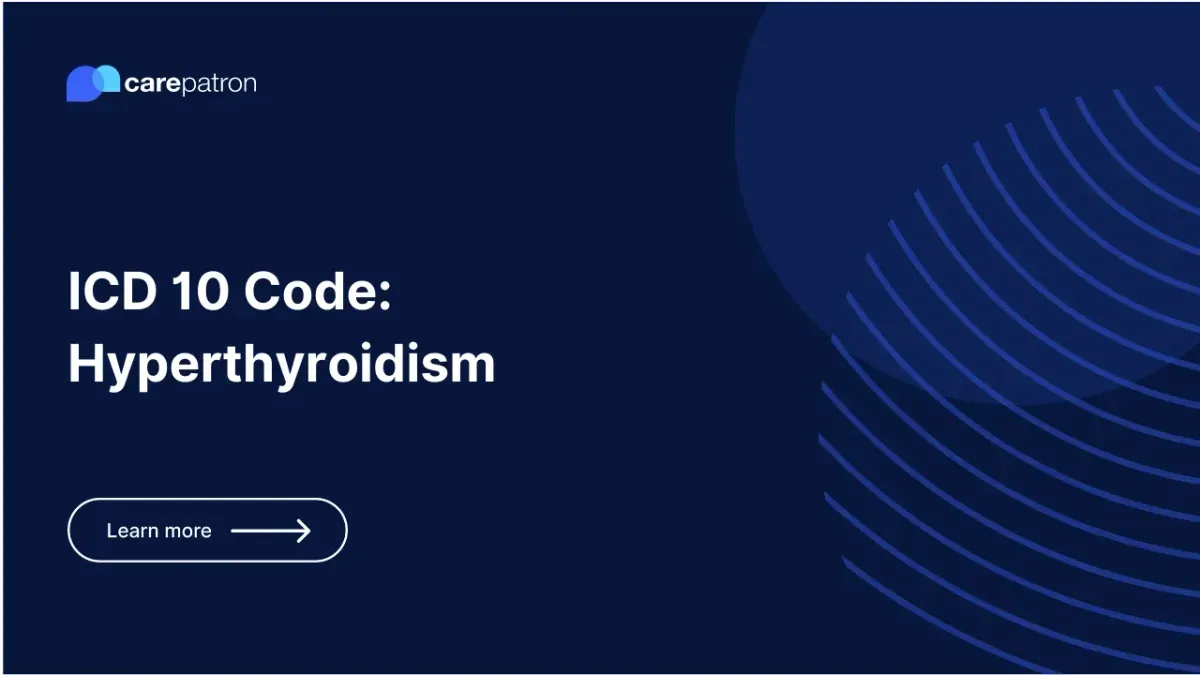What ICD-10 codes are used for hperthyroidism?
Hyperthyroidism ICD codes are instrumental for precise medical billing and clinical documentation. Here are some of the most frequently used:
E05.00: Thyrotoxicosis with diffuse goiter without thyrotoxic crisis or storm
This code is typically used when a patient presents with an overactive thyroid coupled with a diffuse goiter but without a thyrotoxic crisis.
E05.01: Thyrotoxicosis with diffuse goiter with thyrotoxic crisis or storm
This code represents cases where a patient has an overactive thyroid with diffuse goiter and is experiencing a thyrotoxic crisis.
E05.20: Thyrotoxicosis with toxic multinodular goiter without thyrotoxic crisis or storm
Use this code for patients diagnosed with an overactive thyroid and toxic multinodular goiter but not experiencing a thyrotoxic crisis.
E05.21: Thyrotoxicosis with toxic multinodular goiter with thyrotoxic crisis or storm
This code is used when a patient has an overactive thyroid with a toxic multinodular goiter and is going through a thyrotoxic crisis.
E05.30: Thyrotoxicosis from ectopic thyroid tissue without thyrotoxic crisis or storm
This code is assigned when the patient's hyperthyroidism results from ectopic thyroid tissue and is not experiencing a thyrotoxic crisis.
E05.31: Thyrotoxicosis from ectopic thyroid tissue with thyrotoxic crisis or storm
This code is used for cases where hyperthyroidism results from ectopic thyroid tissue, and the patient is experiencing a thyrotoxic crisis.

